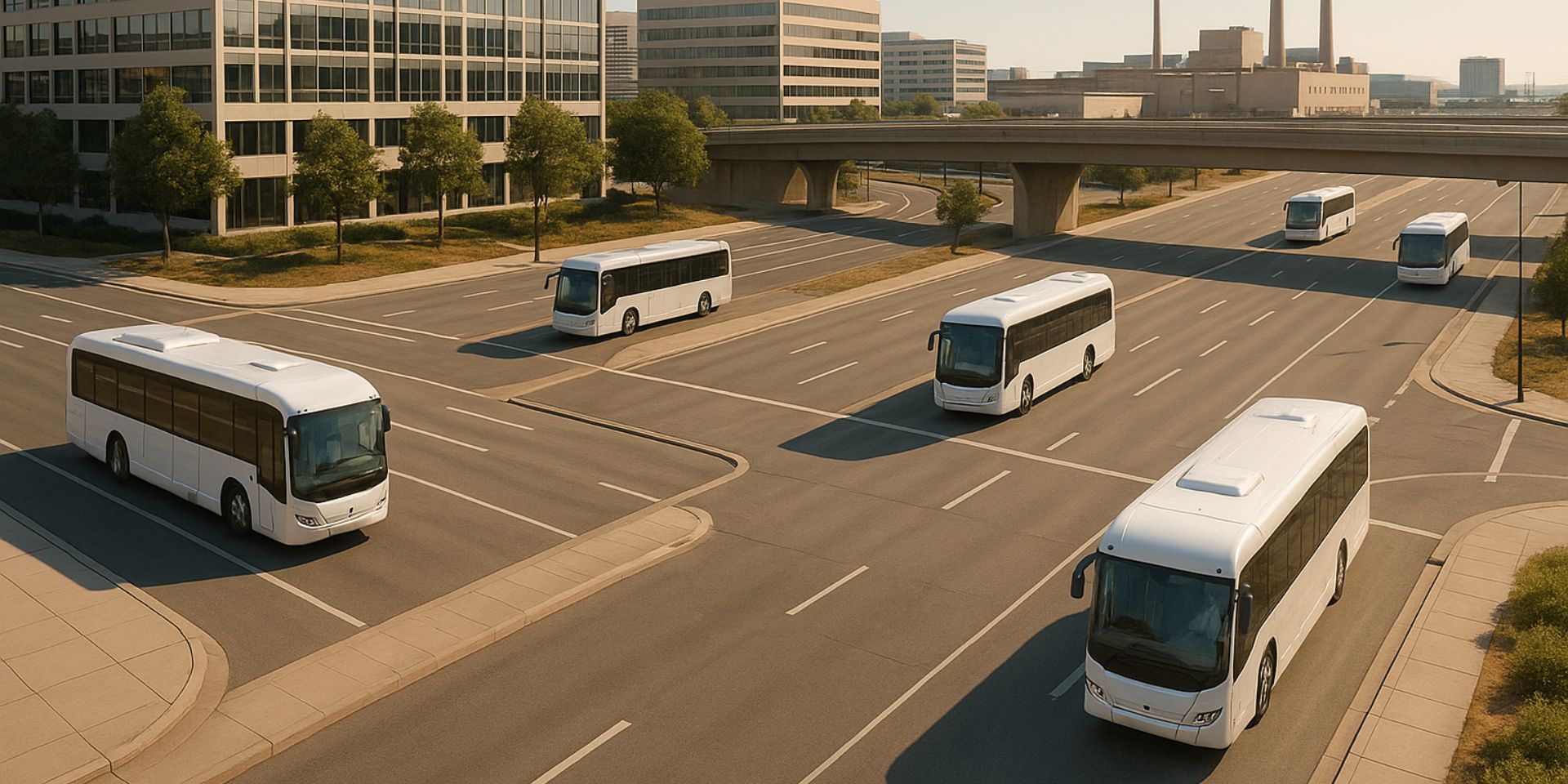How Driving to Work Impacts Employee Productivity
.avif)
The Time Spent Commuting
The average car commute duration in the UK every day is 52 minutes. That is almost an hour of your working day gone without any productive outcome and is still mentally associated with working. The more time you associate with working beyond your set hours, the worse the effect on your satisfaction will be.
Spending a long time on the road can cause resentment for your job, especially if you are working long hours and your lengthy commute exacerbates that. Today, one in seven commuters are spending two hours or more each day travelling to and from work. Driving long distances can mean staff will arrive feeling tired and will already need a break when they arrive before starting their work. This then will impact their ability to get work done in the morning, arguably the most productive period of the day for most, thus making them less productive for the whole day.
Health Problems Caused By The Commute
With the increase in commuting time also comes some concerning increases in employee health problems. According to a study, staff with longer commutes have a 33% increased risk of depression as opposed to their counterparts with shorter commutes. The stress of leaving for work and arriving on time without encountering any journey lengthening problems along the way can have a big impact on how employees feel about their job and themselves.
There is also an increase of 12% when it comes to experiencing work-related stress. The worry of spending so much time getting to work and then having to complete a full working day before that long slog home can cause anxiety and a feeling of underachievement. In turn, employees will be less productive if they are suffering from these types of health problems, and it will only get worse if a remedy is not put in place.
Financial Impact Of Commuting
Travelling a long way to work not only takes its toll on your health and wellbeing, but the costs can mount up and have a huge impact on your employees as well. In fact, 37% of employees who reported having a long commute also have financial difficulties arising from it. General costs of running a car can increase due to wear and tear over prolonged long journeys. Petrol or diesel costs will, of course, increase when travelling longer distances or from being stuck in traffic.
If you have to pay for parking, this can also mount up. The longer the journey the more costs your employees will incur and the greater the financial impact will be. The cost of car insurance is also expensive, especially if you are using the car for business purposes.
What Changes Can You Make To Improve Productivity?
Your employee’s daily commutes can have an impact on productivity in many ways as you’ve seen above, so what can you do to reduce the bearing of a long car journey to work? Here are some of our tips:
Commuter Solutions
Consider using Zeelo as commuter transport option. Creating routes for buses to take your employees to and from work can be incredibly cost-saving, both for you and for your employees. They’ll be able to do so much more with their time, including starting work earlier if needed. By taking out the stress and time wasted driving, your employees can use their time more effectively. It saves the time they need to spend in the office and can make a big difference to the length of the working day. Zeelo uses coaches or minibuses depending on how many employees you need to transport and is also available on a short-term basis such as if you are arranging a meeting or an away trip. Get everyone there on time without any increasing pressure of having to drive to a different location.
Consider Flexible Working
This can work in a variety of ways. For example, if your employees have a long drive, you could consider allowing them to work locally or work from home on occasions. This will reduce the time they’ll be spending having to drive to work and back. You could also offer flexibility in working times to miss the rush hour stress and the chance of getting stuck in traffic. If you cannot offer flexibility, perhaps you could change the shift times of your employees. Altering your start and finish times to be during periods where the traffic is less busy could shave off a lot of valuable time for your employee’s commute. Of course, you must decide what is best for your business and the productivity of your staff to ensure this works well.
Staff Incentives
There are employee rewards and recognition schemes, or perks that you can sign your company up to and offer to your staff. This may include discounts on public transport costs, rewards at petrol stations or even the ability to purchase extra annual leave. Giving your staff incentives will help to improve their happiness and reduce the burden of the long commute. This could also be recognition for hard work and a way to show you appreciate the effort your staff put in to get to work every day. Just allowing your employees to leave the office an hour early on a Friday can make a huge difference to productivity and happiness in the workplace.
What will you do to reduce the stress of the commute and increase employee productivity?
You know the facts about commuter problems and have considered the options to improve productivity. So what will you do to reduce the problems caused by a long drive to work for your employees?
We help companies and schools achieve their transportation program goals
Corporate shuttles


Warehouse/Distribution


Schools & Universities


Become a partner


Want to know how we can help you?












